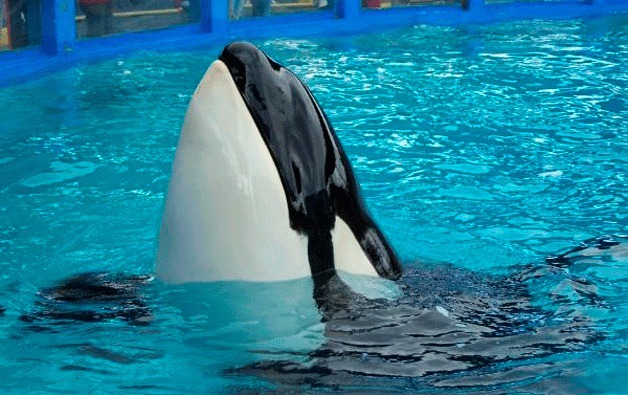Local whale watchers are worried about Lolita, the orca that was captured in Penn Cove in 1970 and has been the star of the Miami Seaquarium, a major tourist attraction in Florida, for more than 40 years.
Reports out of Florida this week say Lolita may be suffering from an infected tooth, and that the Seaquarium has been closed for more than a week while the whale is being attended to, Howard Garrett of the Orca Network headquartered in Greenbank said Tuesday.
“Orca Network has received some disturbing reports from Miami about Lolita’s health in the past few days,” Garrett said. “One of the leading causes of mortality in captive orcas results from infections stemming from dental issues.”
He said a helicopter and camera crew were poised to fly over the stadium to try to gather more information.
“Security around the stadium has been very tight, with lights on all night long and a dozen or so vehicles parked nearby,” Garrett said. “As of early Monday, Lolita’s blows could be heard from within the park, but even that much information is hard to come by now.”
“There’s a complete news blackout,” he added. “They’re treating it as a non-story, but we think it’s much more serious.”
Garrett said Seaquarium is still selling tickets, “but they’re keeping everybody away from the whale.”
Lolita was captured from the Southern Resident community of orcas, listed as endangered in 2005 due largely to the captures for marine parks during the 1960s and ’70s, Garrett said. About a third of the community was removed during the capture era, he said.
Orca supporters have had a running battle with Seaquarium over the treatment of Lolita for years.
They say the display tank Lolita has inhabited for more than four decades doesn’t meet the minimum standards of the Animal Welfare Act because of its inadequate size, the lack of company by the same species since 1980 and the lack of protection from direct sunlight.
Garrett said that Lolita is one of few captive orcas whose family is known and studied regularly, making her a good candidate for retirement and eventual release. Orca Network, former Washington Secretary of State Ralph Munro and the Center for Whale Research have proposed a plan for Lolita’s retirement in her native habitat off Whidbey Island, Garrett said.
See the plan at www.orcanetwork.org/captivity/2007proposaldraft.
“Emotions are pretty high right now,” Garrett said. “A lot of us are watching this very closely.”



